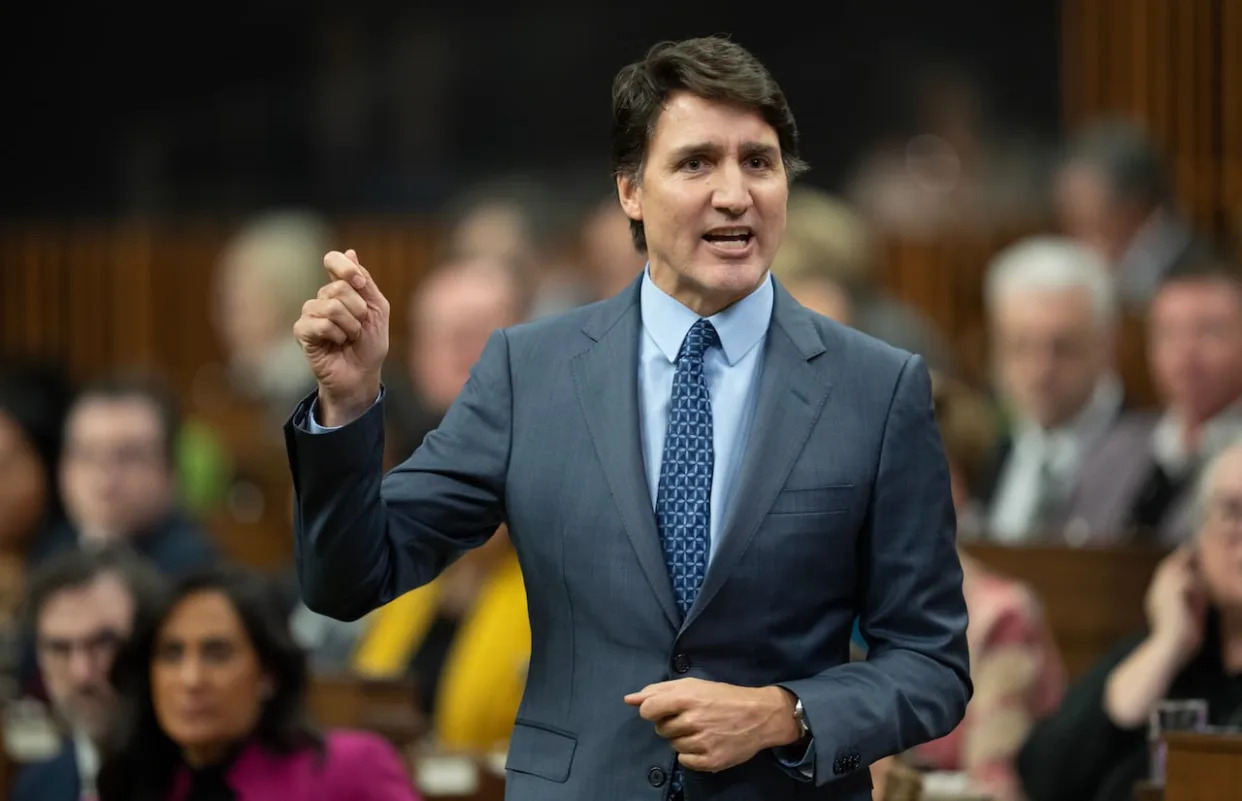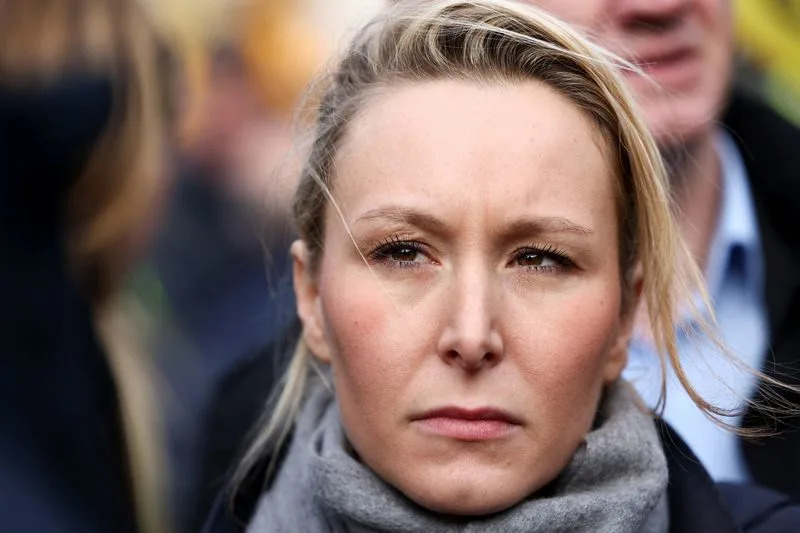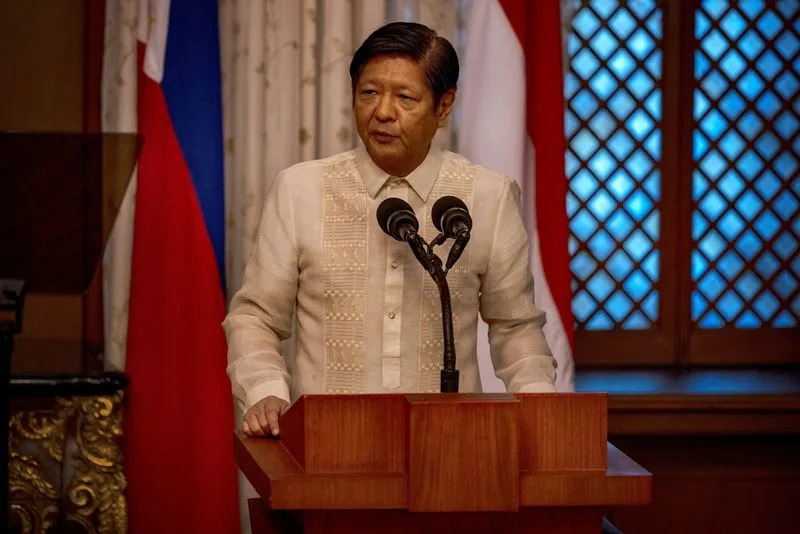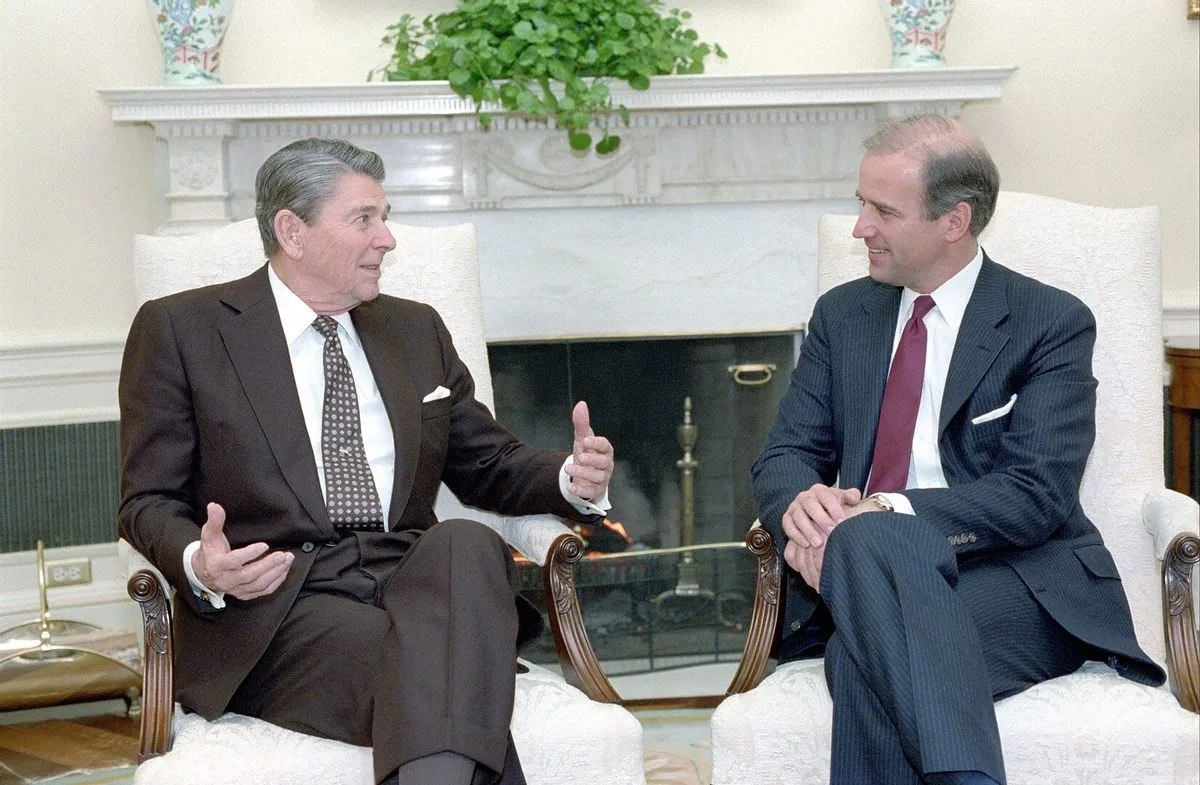Charlotte Lytton
Fri, February 9, 2024

Kaycee Anderson, right, was nine when her father died in the crash
The first sign was the countdown clock. On Feb 1 2003, nine-year-old Kaycee Anderson was in the crowded bleachers by Florida’s Kennedy Space Centre, watching the seconds tick down towards zero – then start climbing back up again. The perfectly blue sky seemed to highlight the absence of the Columbia space shuttle, due to return to Earth that Saturday morning with her father, Mike, and the six other astronauts on board. Instead of a sonic boom and the orbiter approaching, all of a sudden, “people were on the phone talking in urgent tones, and then they were getting in vans”, Kaycee, now 30, remembers. “That’s when I knew, this isn’t normal.”
Along with her mother, sister and the rest of the astronauts’ families, they were bundled into a van, driven to the Space Centre, and told that the worst had happened. Minutes from when they should have landed to a hero’s welcome, the shuttle had broken up at 190,000ft, sending burning metal and human remains plummeting to the ground in east Texas. The shuttle’s disintegration as it breached the planet’s barrier had been broadcast on live television as the families stood staring at the sky, among the last to know their loved ones’ fate.
Twenty-one years on from flight STS-107, it remains among the worst space disasters in history, charted in painful detail in Columbia: The Space Shuttle That Fell to Earth, a three-part BBC documentary series beginning Monday (Feb 12). By the time of its 28th and final mission, Columbia – dubbed “the world’s greatest electric flying machine” – had spent more time in space than any other shuttle. All the more galling, then, that the incident could have been avoided completely.

The STS-107 crewmembers. Blue shirts from the left: David M Brown, William C McCool and Michael Anderson. Red shirts from the left: Kalpana Chawla, Rick D Husband, Laurel B Clark and Ilan Ramon - NASA/Getty Images
From the moment the families learnt what had happened, “it was just chaos,” says Kaycee. She was confused, she recalls, that her father – who had spent eight days in space on Endeavour mission STS-89 in 1998 – had not returned like the last time; on the flight back to Houston, she spent the journey staring out at the clouds, “thinking, ‘Is Dad up here? Am I close to him?’”
Neighbours were crowded at their front door when the three Andersons got home, where they all “just hugged and cried for a long time”. It would mark the beginning of a national grief juggernaut: there were memorial services, a meeting with President Bush; “It was just this whirlwind of things. And so we were sad, but there was so much happening that you don’t really get to sit in it.” Once those commitments drifted away “is when it became more real. And for me, it became very scary.”
Nasa had been providing security detail outside their home, and their post was being screened (a number of “strange calls”, in some cases from prisons, had got through) – but once that ceased, “I was terrified, I couldn’t sleep, I didn’t know what was going on. I was constantly looking over my shoulder.”

The widow of US astronaut Michael Anderson, Mrs Anderson, and her two daughters Sindy (left) and Kaycee (right) planting a tree in memory of Michael Anderson on 19 March 2004 - AFP/Gali Tibbon
To have their parents taken so brutally, and on the world stage, left the children of crew 107 fundamentally altered. Jonathan Clark, a Nasa crew surgeon whose wife, Laurel, was on board, had spent the lead-up to launch concerned about their seven-year-old, Iain. Their boy had “begged her not to go” – his fears intensifying after the family had narrowly survived an aircraft crash the previous Christmas; Iain’s mother was his “whole world”. Now still, Jonathan, 70, who met Laurel during navy training, “can’t even imagine the quandary she would have faced”. Had she pulled out, the mission she and the rest of the crew had spent years training for would have been aborted. “She was determined and committed to get the job done.”
Iain cried throughout the launch, on Jan 16; a grim foreshadowing of what was to come a little over a fortnight later. In his office at Nasa that Saturday morning, where Jonathan saw the footage of 107’s final moments, he was hit by a “primal grief; it was like deep animal wailing cries”. He tried numbing his thoughts by playing cards with Iain on the flight home, and quickly concocted a plan: once back, he would load his son into the car with their Australian shepherd, Addie, and all their camping gear, and empty his account at the nearest cash machine: “We’re just going to drive away and disappear.” But when they landed, they were separated by friends, and that “broke my plan apart”, he reflects. “I still to this day wonder, what if I could have done that?” Instead, that night, in enduring navy tradition, he got “really s- -t-faced drunk” with colleagues. “When we lost our mates, we would just drink and remember.”

Laurel Clark's seven-year-old son, Iain, had 'begged her not to go' during the lead up to the launch
He becomes emotional as we talk, more so as he quotes Mark Twain’s decree that “‘the two most important days of your life are when you’re born, and when you find out why’. And that was the day I found out why.” There were times after losing his wife of 12 years that “I thought I was going to die of dehydration from crying”. He feared grief might push Iain so far as depression and suicide, so developed a solitary goal: “just keep him alive”. The two of them (along with Addie) would bundle up in bed, that countdown clock “embedded in my mind. I would have replays of that for months and months afterwards, trying to analyse: is there something I could have done differently? Is there something that I’d missed?”
For Jonathan, that thought is more acute than most. He had not been the primary crew surgeon for mission 107, but was covering a few “dog shifts” (from midnight to mornings). On one, reviewing the log notes to get up to speed, he learnt that a block of foam from the shuttle’s exterior had fallen off on launch, appearing to strike its left wing. By day two of the mission – and just days before the 17th anniversary of the Challenger disaster, where seven crew had been killed 73 seconds after take-off in 1986 – Nasa officials deduced that the loss of spacecraft and all those inside was a worst-case scenario.
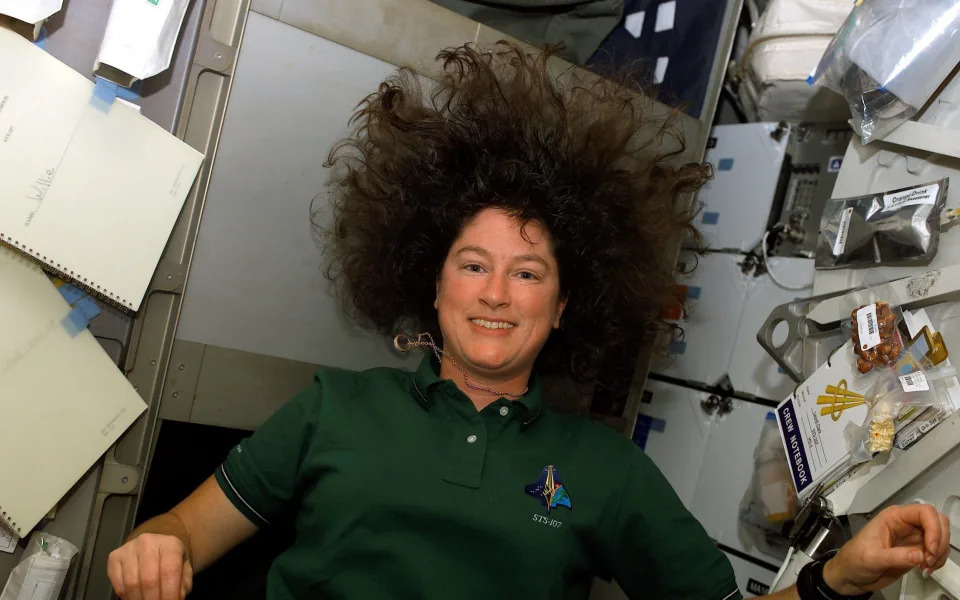
Laurel Clark blew kisses to her son Iain over video link as she orbited Earth
Jonathan “wondered if I should tell Laurel about this” – but on discussing it with his colleague was told: “You’re wearing the crew surgeon hat, not the family member hat.” And so, reasoning that it was not his call, he mentioned nothing when they were connected via video link, Laurel blowing kisses to Iain as she orbited Earth. “In some ways,” he says, what followed is “probably my blame too”.
Whether the seven crew could have been saved hangs heavy over many of those at Nasa at the time. The documentary unpicks the battle between those concerned that the foam strike would yield deadly consequences, and Nasa management, where bureaucracy was so hardwired that staff did not ask vital questions for fear of disrupting the status quo.
Repeated requests to use satellites to take closer images of the damage were denied by the top brass; foam had detached in prior missions without catastrophic consequences, and thus was deemed not worth remedying. The crew would learn that something had happened only on the eighth day of their mission – several days past the point where potential damage could have been fixed – when Linda Ham, the acting manager of shuttle launch integration, sent them a brief email on a matter she described as “not even worth mentioning.” Eight days after that, when mission control watched their tracking radar stall over Texas, the damage having originated in the left wing, commanders could only reach their hands to their mouths, tears falling from their eyes as they stared at the screen in horror.

Flight STS-107 remains among the worst space disasters in history - Courtesy of Scott Andrews
Following 107’s failure to return, Ron Dittemore, the shuttle programme manager, publicly dismissed that the foam strike was to blame with a certainty former employees describe in the documentary as “nonsensical”. What had become an unofficial Nasa mantra – “it’s only foam” – would six months later be recorded as the reason that the crew never saw their families again.
“It almost felt like a betrayal,” Kaycee says: that her father “had worked with [Nasa], had loved them, and this is how they treated him”. It kept her up at night, wondering how staffers “were afraid of these hypothetical questions, or having their careers ruined. Well, lives were ruined – who cares about your career? And so that’s when it became anger. And that’s when anger eventually became disgust.”
She couldn’t look at anything with Nasa’s insignia on it, she recalls; when the end of the shuttle programme was announced in 2011, she thought: “Good, burn it all to the ground.” In time, those feelings subsided, replaced instead by sadness for those who had made the final calls. The documentary was “heartbreaking”, she says; watching Nasa staff recounting how “they could have done something… I don’t have to live with that kind of regret.”

Michael Anderson did not return like he did in 1998 on Endeavour mission STS-89 - NASA/Getty Images
Jonathan too says he lays no blame at anyone’s door; that “everybody who was a part of that decision process has suffered immeasurably”. (Arron Fellows, the creative director of Mindhouse Productions, which made the series, says Nasa co-operated with filming throughout: “I think the reason they have given their blessing to this project is because they understand mistakes were made.”) In space mishaps, as they are known, “the goal is to find cause, not fault,” Jonathan adds; to “do better next time”.
He has never remarried, and still lives for Laurel; both her memory, and the seven-year-old granddaughter who now bears her name. Little Laurel is the same age as Iain was when he lost his mother, and the similarities between her and her namesake are “eerie”, Jonathan says; she is “effervescently friendly”, obsessed with the water, animals and adventure. “It’s like seeing Laurel again.”
Columbia: The Space Shuttle That Fell to Earth begins on Monday Feb 12 on BBC Two at 9pm




